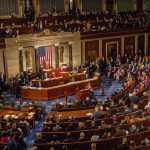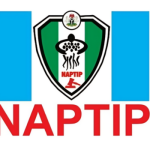Representatives of the civil society groups, government and private institutions, and the media on Monday, asked the Senate to drop further consideration of the anti-social media bill, in the interest of Nigerians.
Our correspondent observed that only three speakers out of the 62 individuals, institutions and groups, who submitted a memorandum and spoke at the public hearing organised by the Senate Committee on Judiciary, Human Rights and Legal Matters, rejected the proposed legislation.
Those who opposed the bill argued that it violated the fundamental human rights of Nigerians, and contravenes the existing international statutes to which Nigeria was a signatory.
They also insisted that there was sufficient legislation which had already taken care of protection from falsehood and manipulations.
The antagonists of the proposed legislation, sponsored by Senator Sani Musa, said the ambiguity of the bill will result in lack of citizen’s trust and confidence in governance.
They also noted with great concern that the similar law in Singapore where the bill was plagiarised was being used by the government there to target critics and political enemies.
They were unanimous in their submissions that the emergence of social media had contributed greatly in expanding frontiers for good governance.
They said citizens reporting on government abuses had emboldened citizens to hold government and their agencies accountable.
Those against the anti-social media legislation further argued that the bill will stifle the rights of freedom of expression as citizens will be too scared to speak up and hold the government accountable for their actions.
Shortly after the public hearing was declared open by the President of the Senate, Ahmad Lawan, Nigerians, who spoke at the hearing, kicked against the bill, on the grounds that it did not represent the interest of Nigerians.
Those who spoke against the bill were, the head of Civil Society Organisation Situation Room, Clement Nwankwo, the National President of the Nigeria Union of Journalists, Christopher Isiguzo and the Executive Vice Chairman of the Nigerian Communication Commission, Umar Dambata.
They also included the Chairman of the Broadcasting Organisations of Nigeria, Saad Ibrahim and the Chairman of DAAR Communication, Raymond Dokpesi Jr.
The Publisher of Sahara Reporters, Omoyele Sowore, the Amnesty International and the Policy and Legal Advocacy Centre and the Socio-Economics Rights and Accountability Project, among others, also called for its rejection.
The Executive Director, YIAGA Africa, Mr Samson Itodo, aligned with others who had spoken against the bill and urged the Senate to throw it away.
Itodo said: “The 9th Senate is therefore urged to take historical note of how previous sessions of the National Assembly had sided with the people and resisted executive overbearing and repression.
“Previous lawmakers by their action have thereby safeguarded the civic space and ensured respect for Nigeria’s international human rights obligations.
“YIAGA Africa is of the firm view that the Protection from Internet Falsehood and Manipulation Bill (Social Media Bill) is not reasonably justifiable in a democratic society.
“Even though the Government’s purpose may be legitimate and substantial, that purpose cannot be pursued by means that broadly stifle fundamental personal liberties.
“We strongly believe that the Bill contravenes extant laws that guarantee citizens freedom of expression and thought.”
But the Nigeria Army, however, supported the bill arguing that even in advance democracy, they still have a way of regulating the media.
Representing the Chief of Army Staff, Yusuf Buratai, Major General Solomon Udoma said that false information undermines leadership, destroy peace and threatens unity.
However, one of the supporters of the bill, who is the Director of Administration of the Nigerian Supreme Council for Islamic Society, Ustaz Yusuf Nwoha, pleaded with the Senate to pass the bill.
He cautioned that aspects that could infringe on the rights of Nigerians should be expunged from the proposed law.
He said, “Nigerian and the National Assembly is hereby urged to do all within its powers to see that the bill is passed into law for the benefit of Nigerians.
“We thank the Senate Committee on Judiciary, Human Rights and Legal Matters for this opportunity to make our comments and air our views.”
The Independent Corrupt Practices Commission represented by Dr Esa Onoja, maintained a neutral position.
Onoja said an endorsement agency they are duty-bound to enforce any law passed..
The Chairman of the Senate Committee on Judiciary, Human Rights and Legal Matters, Opeyemi Bamidele, said over 60 individuals, groups and institutions have volunteered to speak on the bill.
He, however, said that the views and opinions expressed by stakeholders at the forum will form the basis for his committee’s report.
The sponsor of the bill said the legislation seeks to regulate information being posted on the social media to guide against abuse.
The President of the Senate, Lawan, said the Senate’s eventual position will be partly dependent on the Committee’s report.
He said, “I agree that matters of freedom of speech and the inalienable rights of man are issues we should not compromise. I also agree that the right of an individual ends where the rights of another individual begins.
“The rope between the freedom of an individual and the limits of that individual is often a tight one to walk.
“As a people, however, we cannot stop discussing this freedom and its limitations for peace and harmony, growth and development.
“I am assured that with the people carefully invited here today, we are in a good position to proffer well-reasoned arguments on way forward on the Bill.”











